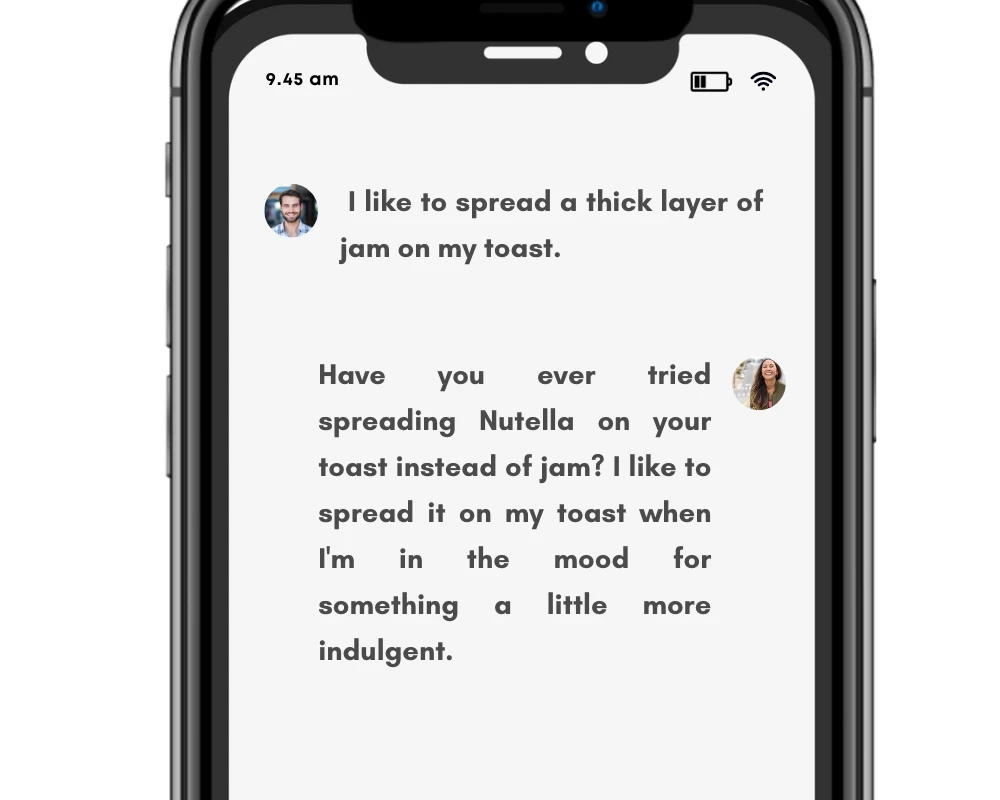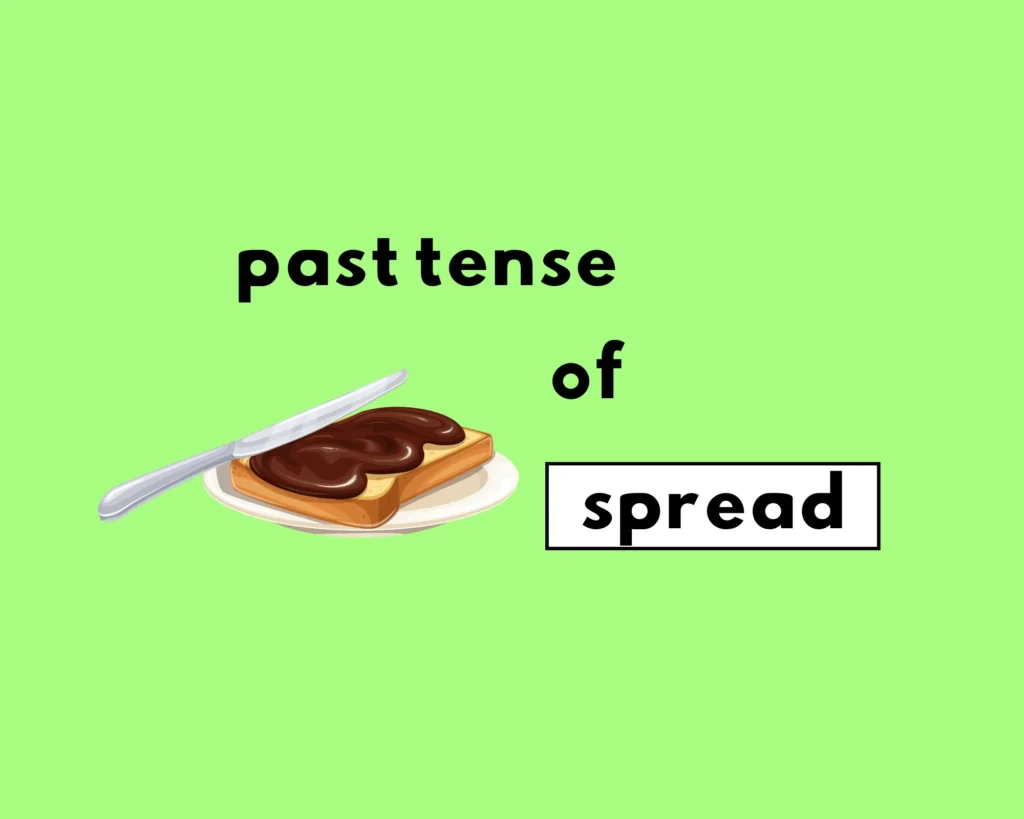
What’s the past tense of “spread”?
- The past tense of spread is spread. This is the only past form of spread.
- Spread is an irregular verb with the same present and past tense form.
- Spreaded is often mistaken as the past tense of spread. Most view spreaded as an error and a nonstandard variant; it’s best to avoid “spreaded” and stick to spread as the past tense and past participial forms.
The news spread quickly.
Spread the butter thinly on the toast.
They had spreaded the rumor before anyone could stop them.
He has spreaded lies about me.
Forms of “spread”
| present | past | future | |
| simple | I spread | I spread | I will spread |
| continuous | I am spreading | I was spreading | I will be spreading |
| perfect | I have spread | I had spread | I will have spread |
| perfect continuous | I have been spreading | I had been spreading | I will have been spreading |
Remember to always pair participles with an auxiliary! For perfect tenses, use ‘have’, ‘has’, or ‘had’. For continuous, use a form of ‘to be’.
Irregular verbs (with one past tense conjugation)
Certain verbs, like spread, show no change between their present and past tense verb forms. For this reason, spread and other similar verbs are irregular. Regular verbs add “-ed” to denote the past tense. Irregular verbs end in something other than “-ed” in the past tense, such as spread.
When verbs appear identical in both the past and present tense, how we’ determine tense is by paying attention to the other grammatical aspects in the same sentence (as demonstrated by the chart above). See the chart of other verbs with one form in the present/past tense.
| base verb | past tense | past participle |
| cut | cut | cut |
| burst | burst | burst |
| bet | bet | bet |
| shut | shut | sunk |
| hit | hit | hit |
| set | set | set |
| spread | spread | spread |
Sentences with “spread” (present tense)
She spreads cream cheese on her bagel every morning.
The wildfire spreads rapidly through the dry forest.
The news spreads like a virus on social media.
He spreads fertilizer in the garden to help the plants grow.
The student spreads out all the materials before starting the project.
Sentence examples with “spread” (past tense)
Last week, they spread a layer of mulch in the garden.
The disease spread to neighbouring towns before it was contained.
She spread a blanket on the beach and watched the suns go down.
We spread a layer of icing on the freshly baked cake.
He spread the map out on the table to plan the road trip.
Examples with “spread” (past participle)
The virus has spread uncontrollably in recent weeks.
The message has been spread to raise awareness about the cause.
The butter should be spread evenly on the toast.
The news had already spread to all corners of the city.
They found the disease had spread further than they had anticipated.
Practice questions: forms of ‘spread’
| Questions | Answer options: |
|---|---|
| 1. True or false: “Spread” has both a regular and irregular verb form. | a. true b. false |
| 2. “Spreaded” is a nonstandard variant and misspelling of the past tense of “spread”. | a. true b. false |
| 3. Choose the tense the sentence is written in: The disease spreads easily. | a. past simple b. present tense c. present perfect continuous |
| 4. The sentence is in what tense: I wish he would stop spreading lies about me. | a. simple past b. present continuous c. past perfect |
| 5. The sentence is in what tense: The news had spread and was causing great excitement. | a. present perfect b. present continuous c. past perfect |
| 6. Select the tense the sentence is in: The disease is spread by mosquitoes. | a. present perfect b. past continuous c. present simple |
Answers
- b
- a
- b
- b
- c
- c
Phrases with “spread”
| Idiom | Meaning |
| To be spread too thin | to be overworked or overwhelmed by too many tasks or having to much to do |
| To spread/cast a wide net | to open yourself to a variety of options |
| To spread like wildfire | for something to catch on extremely fast |
| Ill news spreads apace | bad news spreads quickly |
| Spread your wings | to live independently and explore life’s opportunities |
Sources
- “spread.” TheFreeDictionary.com. 2023. Farlex, Inc. 20 Dec. 2023 https://idioms.thefreedictionary.com/spread
Worksheet
What is the past tense of “spread”?
Which sentence uses “spread” correctly in the past tense?
Is “spread” a regular or irregular verb?
Which of the following is NOT a correct past participle form of “spread”?
The jam ______ evenly on the bread.
The wildfire rapidly.
The news had already to all corners of the city.
She a blanket on the grass.
The paint easily.
Yesterday, they the fertilizer.
Frequently Asked Questions
What is the past tense of “spread”?
+
Is “spreaded” grammatically correct?
+
How do I know if “spread” is past tense?
+
What are some examples of “spread” in past tense?
+
“Spread” is an irregular verb? How?
+
Yash, D. "What’s the Past Tense of Spread? (Spread? Spreaded?)." Grammarflex, Jun 19, 2025, https://www.grammarflex.com/whats-the-past-tense-of-spread/.











